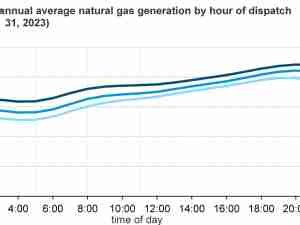We have assigned a new management and governance (M&G) assessment of neutral to Airbus SE.
- The assignment of the M&G assessment follows the Jan. 7, 2024 publication of S&P Global Ratings' revised criteria for evaluating the credit risks presented by an entity's M&G framework (see "Criteria | Corporates | General: Methodology: Management And Governance Credit Factors For Corporate Entities," published Jan. 7, 2023).
- Our ratings on Airbus SE, including our 'A' issuer credit rating, remain unchanged following the assignment of the new M&G assessment.
PARIS (S&P Global Ratings) Jan. 26, 2024--S&P Global Ratings today took the rating actions listed above.
S&P Global Ratings today assigned a new M&G modifier assessment of neutral to Airbus SE. The action follows the revision to our criteria for evaluating the credit risks presented by an entity's M&G framework. The terms management and governance encompass the broad range of oversight and direction conducted by an entity's owners, board representatives, and executive managers. These activities and practices can affect an entity's creditworthiness and, as such, the M&G modifier is an important component of our analysis.
Our M&G assessment of neutral reflects that although Airbus' management and governance practices may have some positive aspects, overall, they are neutral in terms of credit risk.
All other ratings on Airbus SE remain unchanged. For the latest rationale, see "Airbus SE," published on Oct. 24, 2023, on RatingsDirect.
The stable outlook indicates that we expect the group to continue to benefit from positive demand and increasing deliveries over the next two years. We anticipate that the group will follow a credit-supportive financial policy over this period and will retain considerable financial flexibility at the current rating level. In our view, leverage ratios of S&P Global Ratings-adjusted funds from operations (FFO) to debt above 60% and adjusted debt to EBITDA of less than 1.5x are consistent with the ratings.
We could lower the ratings if Airbus underperformed our expectations in 2023 and 2024. This could occur if a new variant of COVID-19 had a material effect on the commercial aerospace industry; if production could not be successfully ramped up, as planned; or if the supply chain were unable to keep pace with Airbus' ambitions. In addition, we could downgrade Airbus if profitability came under pressure, the company returned to an adjusted net debt position, or its adjusted FFO to debt were less than 60%.
We could raise the ratings if the wider commercial aerospace industry continued to recover, supporting higher demand for new planes, and Airbus was able to smoothly ramp up production and deliveries more quickly than we assume in our base case. We could also upgrade Airbus if we expected the group's absolute EBITDA to be less volatile because management maintained tight control over the costs associated with the A321XLR and A350F planes, while existing platforms (such as the A400M) saw no new cost overruns or exceptional charges. An upgrade would depend on the group continuing to post a net cash position and exceptional liquidity.








